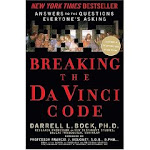ISBN #9780310266303
In this post I pick up on my review of the book mentioned above. This post will be specifically about chapter two…and while I don’t intend to do a review of each chapter I do want to discuss specific ones that are representative of the entire book. Chapter two is such a chapter.
Let me begin by saying that I really like much of what Claiborne brings up…his heart is in the right place. The purpose of my posts is not to denigrate his efforts on behalf of poverty or his desire to effect social change, not at all. My entire purpose is to address his claims, his motivations; and why do I do this? Because I like to criticize? Well maybe I do like to criticize, if so I beg the forgiveness of those whom I have criticized and when I see it in my life I will ask my Lord for forgiveness. So no, I do not believe it is a desire to tear down that motivates me. Bear in mind that when I address people’s opinions I do so when they first have shared these…duh right? How would I know what to address unless they had done so? This is important though, because I want you to think about that. If someone expresses an opinion, does not that imply that they are ready and willing to defend that opinion? Does it not therefore open them up to correction? If I were to fall over myself in praising someone for what they have said aloud, then they would love me and people who overheard would think very well of me. But when I disagree and make it known…nobody likes me! What are they really saying? They don’t like my willingness to engage in a polemical interaction with them…BECAUSE they want everyone to agree with them. I am willing to speak publicly on what I believe, and when I do so, I expect that many people will disagree with me…why should I get mad when they do so? Anyhow, I only mention this because I know what people think when I speak out against someone who has voiced an opinion…grace towards me is denied!
So back to Claiborne…his heart is in the right place. But since he’s chosen to speak in a way that clearly demonstrates he believes he holds some truth that is more perfect than “Christianity,” [the quotes are his…he uses them often when he refers to mainstream Christianity] then I must interact with his claims. And whenever someone chooses to use Scripture to prove a point then they must expect that their comments and their use of that Scripture will be tested. Guess what? Luke praises people for testing the words of the Apostle Paul! See Acts 17:10-11 So if the Apostle’s words should be tested…then don’t you think Claiborne’s should? So do I!
In the first few pages of chapter two we read about an experience Claiborne had with some people who were being evicted from a church they had squatted on…and reading how he and his friends became involved is nothing short of inspiring. His descriptions of the outcry against the injustice occurring is what I wish we would see more of…I only wish that this experience had led him to a desire for His Word…but instead it led him towards an emotional type of spirituality that masquerades as true Christianity. This is sad because in reading his book, I can see where Claiborne could be such a powerful tool for Christ…
Let me ask a question: What is systematic theology? According to Webster’s dictionary it means “a branch of theology concerned with summarizing the doctrinal traditions of a religion (as Christianity) especially with a view to relating the traditions convincingly to the religion's present-day setting.” (Find it Here) You know what this means? It means that systematic theology is the study of the doctrines of the faith. It is the effort to take the biblical doctrines and explain them in a way that helps us apply them to our lives today. Do you believe that Jesus was born of a virgin? Do you believe that He died on the cross for your sins? Oh-oh…you have just given affirmation to doctrines! Shame on you! Just being sarcastic of course. The reason I bring this up, however, is because the point in this chapter at which Claiborne transforms himself from a man doing good deeds to a false preacher is on page 62 where he states that after seeing people involved in resisting the eviction of the homeless people he felt that “[t]he body of Christ was alive, no longer trapped in stained-glass windows or books of systematic theology…” Later in the chapter he says that “[t]he church became something we are - an organism, not an organization. Church became so fresh and vibrant, it was like we had brought something dead back to life. And perhaps we had. In fact, one of the old news headlines read. “Church Resurrected.” There’s some systematic theology for you.” [emphasis his]
Do you see what he is implying? Systematic theology: boring and dead. Social activism: exciting and alive.
Wrong. Of course the body of Christ is alive…of course it is Christians who are the church…who has ever said anything different? But if you can consider systematic theology a sign of deadness then the spiritual death lies elsewhere, perhaps within the living breast of he who would mock it. And you know what? We don’t do things for others in order to feel alive…we don’t engage in helping the poor or the sick because it makes us feel good. We do it because systematic theology has led us to an understanding of how we should walk in the Way! Something that someone belonging to an organization called “The Simple Way” should know!
Later he writes that “[w]e dreamed ancient visions of a church like the one in Acts, in which “there were no needy persons among them” because everyone shared their possessions…We knew we could end poverty. The early church did, and the homeless families were doing it…[w]e were not interested in a Christianity that offered these families only mansions and streets of gold in heaven when all they wanted was a bed for their kids now. And many Christians had an extra one.”
Let me address the comments above like this:
No needy among them? I don’t know what version he’s been reading (probably The Message- ha-ha) but Acts 2:45 says “and [they] sold their possessions and goods, and divided them among all, as anyone had need.” So first of all, there were those who had need, but my point is that the early church did not end poverty nor did they intend to do so! And if you want to be literal…the giving to the poor here meant the poor in Christ, so even if poverty could be ended, it would be ended among the Believers! And as far as knowing that they could end poverty…Claiborne and his friends must have had some word from God which even Jesus (incidentally, He WAS God!) did not have because Jesus said we would ALWAYS have poor people among us (Matthew 26:11). Maybe He should have checked with Shane before He said this! :)
You know, it is a good thing to have a burden for the poor. It is a good thing to want to help the sick. But it is not Biblical to say that meeting these needs is more important than meeting the spiritual needs around us. Want to sell your possessions and give the proceeds to homeless shelters and soup kitchens? Go for it. But don’t tell anyone it is required of a Believer because the Bible does NOT say this anywhere! And if you feel such a burden for the poor, then for the sake of our Lord, minister to them with the Word in your hands and the Gospel on your lips! Because our Lord did not command us to go and solve all the problems of the world…poverty, AIDS, the eradication of the Amazon forests. What He did command was for us to “Go therefore and make disciples of all the nations, baptizing them in the name of the Father and of the Son, and of the Holy Spirit, teaching them to observe all things that I have commanded you; and lo, I am with you always, even to the end of the age.” Amen” (Matthew 28:19-20) And by the way, the “go therefore” in the Greek implies “as you are going.” In other words…as you live your daily life, spread the Good News!
I will post more on this book later.





No comments:
Post a Comment